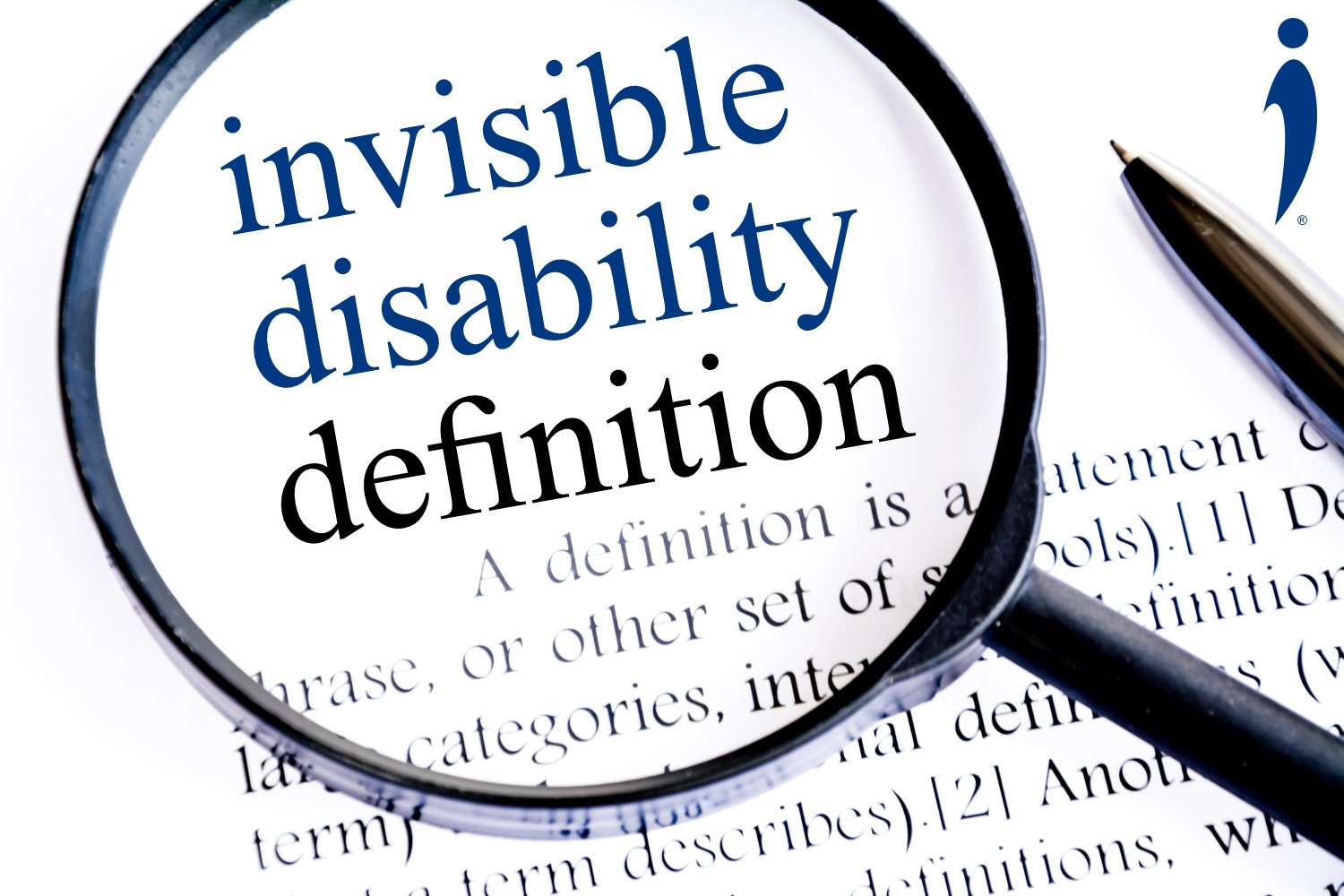Definition: Unlocking the Meaning and Importance

Understanding the meaning of words is essential for clear communication. Definitions help us grasp complex ideas easily.
Have you ever come across a word and wondered what it truly means? Definitions are the key to unlocking the essence of a word or term. They provide clarity and precision, which are vital in both everyday conversations and specialized fields.
In this blog post, we will explore the importance of definitions, how they are formed, and why they matter in various contexts. Whether you are a student, a professional, or simply a curious mind, knowing how to find and understand definitions will enhance your communication skills and deepen your knowledge. Let’s dive in and decode the world of definitions together.

Credit: invisibledisabilities.org
What Is Definition?
Understanding the concept of a definition is fundamental in many fields. Definitions help clarify the meaning of words, ideas, and concepts. This section delves into what a definition is, its basic concept, and its historical perspective.
Basic Concept
A definition explains the meaning of a word or phrase. It provides clarity and understanding. Definitions are essential for communication. They ensure everyone understands a term in the same way.
Definitions can be simple or complex. They often include essential characteristics of what is being defined. For example, a definition of a “cat” might include that it is a small, domesticated animal, known for its agility and independence.
Historical Perspective
Definitions have evolved over time. In ancient times, philosophers like Aristotle emphasized the importance of defining terms. Aristotle believed a good definition included the genus (general category) and the differentia (specific characteristics).
During the Middle Ages, scholars continued to refine definitions. They used them to explain religious and philosophical concepts. The Renaissance brought further changes. Scholars focused on precise definitions to advance science and knowledge.
Today, definitions are crucial in many fields. They help us understand and communicate complex ideas. They are used in dictionaries, legal documents, scientific research, and everyday conversation.
:max_bytes(150000):strip_icc()/incoterms_final-7ae029836ab948fda48dbba261fbfcdd.jpg)
Credit: www.investopedia.com
Types Of Definitions
Understanding definitions is crucial for clear communication. Definitions help us explain terms and concepts. There are different types of definitions that serve various purposes. This section will explore two important types: lexical and operational definitions.
Lexical Definitions
Lexical definitions explain the common use of a word. They are found in dictionaries. These definitions provide the standard meaning of a term. Lexical definitions are helpful in everyday language. They ensure everyone understands the same meaning.
Operational Definitions
Operational definitions explain how to measure or identify something. These definitions are used in scientific and technical contexts. They provide a clear procedure for observation or measurement. Operational definitions ensure consistency in experiments and studies. They help avoid confusion and ensure accurate results.
Importance Of Definitions
The importance of definitions cannot be overstated in any field. Definitions provide a clear understanding of concepts and terms. They help avoid confusion and misinterpretation. Every discipline relies on precise definitions to function effectively. Without definitions, communication becomes challenging and unreliable. In this section, we will explore why definitions are so crucial.
Clarity And Precision
Definitions bring clarity and precision to any subject. They eliminate ambiguity by specifying the exact meaning of terms. This precision ensures that everyone understands the term in the same way. Clear definitions are essential in academic and professional settings. They lay the foundation for further discussion and analysis.
Effective Communication
Effective communication relies heavily on clear definitions. Misunderstandings often arise from vague or unclear terms. Definitions ensure that messages are understood as intended. They bridge the gap between different perspectives. In business, clear definitions improve teamwork and collaboration. In education, they help students grasp complex concepts easily.
Role In Different Fields
The definition of a term can vary across different fields. Understanding these variations is crucial. It helps us grasp the full meaning and application of a term. In this section, we will explore the role of definitions in diverse areas.
Science And Technology
In science, definitions provide clarity. They ensure everyone understands the same thing. For example, a ‘cell’ in biology has a specific meaning. It refers to the smallest unit of life. In technology, definitions help standardize terms. This is crucial for developing new technologies.
Definitions in science and technology also facilitate communication. Scientists and engineers can share ideas accurately. This leads to better collaboration. Definitions also help in education. Students learn complex concepts more easily.
Here is a table showing some key definitions in science and technology:
| Term | Definition |
|---|---|
| Atom | The basic unit of a chemical element |
| Algorithm | A process or set of rules to be followed in calculations |
| DNA | The carrier of genetic information |
Humanities And Social Sciences
In the humanities, definitions are more flexible. They often deal with abstract concepts. For example, ‘freedom’ can have many meanings. It depends on the context. Definitions in humanities help in understanding different perspectives.
In social sciences, definitions are vital for research. They help in forming hypotheses and theories. For example, ‘social class’ must be defined clearly. This helps in studying social structures and inequalities.
Definitions also play a role in policy-making. Clear definitions ensure that policies are effective. They help in measuring and evaluating outcomes.
Here are some important terms in humanities and social sciences:
- Culture: The ideas, customs, and social behavior of a society.
- Democracy: A system of government by the whole population.
- Ethics: Moral principles that govern behavior.
Challenges In Defining Terms
Defining terms can be tricky. Words often have different meanings based on context. This makes clarity challenging. Many terms are vague or ambiguous. This causes confusion. Understanding these challenges helps in proper communication.
Ambiguity
Ambiguity arises when a word has multiple meanings. This can lead to misunderstandings. For example, the word “bank” can mean a financial institution or the side of a river. Context helps, but misinterpretations can still occur.
Contextual Variations
Words change meaning based on context. “Bat” can refer to an animal or a piece of sports equipment. The surrounding words help determine the intended meaning. Contextual variations add complexity to defining terms. Clear communication requires understanding the context.
Methods To Formulate Definitions
Methods to formulate definitions are essential for clear communication. Understanding these methods helps in accurately describing terms. There are two main methods: analytic and synthetic. Each has its own approach and advantages.
Analytic Methods
Analytic methods break down a term into its basic components. This method looks at the term’s essential parts. For example, defining “bicycle” involves two wheels, pedals, and a frame. The term is analyzed to understand its core elements. This method is helpful for technical or complex terms.
Synthetic Methods
Synthetic methods combine different elements to form a new definition. This method creates a new understanding by merging concepts. For instance, defining “smartphone” combines phone and computer functions. By integrating these features, a comprehensive definition is formed. This method is useful for new or evolving terms.
Impact On Knowledge And Learning
The impact of definition on knowledge and learning is profound. Definitions help us understand concepts clearly. They provide a foundation for learning. With clear definitions, we can grasp complex ideas more easily. This clarity aids in better knowledge retention and application.
Conceptual Understanding
Definitions play a crucial role in conceptual understanding. They simplify complex concepts into understandable terms. Clear definitions help learners form a mental picture. This makes it easier to connect new information with existing knowledge. Conceptual understanding grows stronger with precise definitions. It leads to deeper insights and better problem-solving skills.
Information Retention
Good definitions enhance information retention. When learners understand a concept well, they remember it longer. Clear definitions make it easier to recall information. They also help in organizing knowledge in the brain. This organization aids in retrieving information when needed. Overall, definitions play a key role in retaining knowledge effectively.

Credit: invisibledisabilities.org
Future Trends In Definitions
The future of definitions is evolving with technology and changing language. New trends are shaping how we understand and use definitions. This section explores these future trends.
Digital And Ai Influence
Digital tools are changing how we access definitions. AI provides instant explanations. Users get accurate definitions quickly. AI adapts to new terms. It learns from user behavior. This makes definitions more relevant. AI also helps in understanding context. It can explain words in different scenarios. Digital platforms offer interactive experiences. Users can see examples and usage tips. This makes learning definitions easier.
Evolving Language
Language changes over time. New words enter our daily lives. Old words gain new meanings. Definitions must keep up. Online dictionaries update frequently. They add new words and meanings. Social media influences language change. Slang and internet speak become common. Dictionaries adapt to these trends. They provide current, accurate definitions. This helps users understand modern language.
Frequently Asked Questions
What Is The Definition Of A Term?
A definition explains the meaning of a term or concept. It provides clarity and understanding. Definitions are often used to ensure everyone has the same understanding.
Why Are Definitions Important?
Definitions are crucial for clear communication. They prevent misunderstandings by providing precise meanings. They help readers grasp complex concepts easily.
How Are Definitions Created?
Definitions are formulated based on research and consensus. Experts in a field often contribute to accurate definitions. They ensure the term is understood universally.
Can Definitions Evolve Over Time?
Yes, definitions can change as new information emerges. Language and societal changes often influence definitions. It’s important to stay updated.
Conclusion
To sum up, understanding the definition is crucial. It helps in clear communication. Knowing terms helps us grasp concepts better. It avoids misunderstandings in conversations. Definitions give words meaning, making learning easier. So, always seek to understand definitions. It improves both knowledge and communication skills.
Keep this in mind for future learning.





